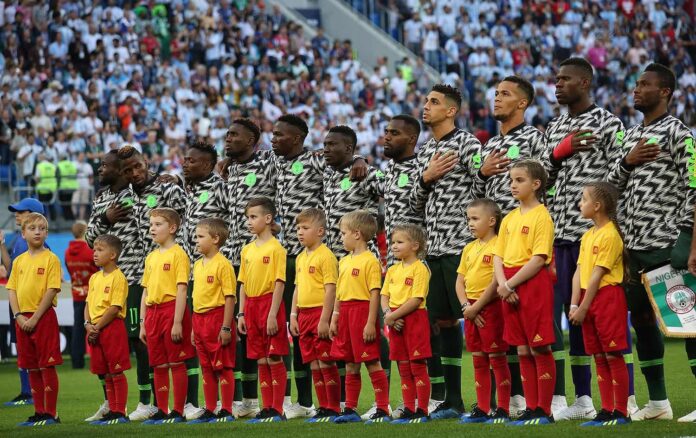Here Is The Easy Money-Making Trick Everyone Is Talking About! Learn More Here!
In the rich history of Nigerian football, one significant milestone stands out – the year Nigeria joined FIFA. It was a momentous occasion that marked the country’s formal recognition on the global football stage.
The journey began in 1945 when the Nigeria Football Federation (NFF), then known as the Nigeria Football Association, was formally launched.
This marked the birth of organized football in Nigeria and laid the foundation for future achievements.
Four years later, in 1949, the first Nigerian national football team was formed. This team would go on to represent the country in various international competitions and pave the way for future successes.
In 1959, Nigeria took another significant step by joining the Confederation of African Football (CAF).
This membership allowed Nigeria to compete against other African nations and gain valuable experience on the continental stage.
Finally, in 1960, Nigeria achieved a historic milestone by joining FIFA. This marked the country’s official entry into the global football community and opened doors to new opportunities and challenges.
The Nigeria Football Federation, as the country’s football governing body, has played a crucial role in shaping the nation’s football landscape.
With its headquarters located in the city of Abuja, the NFF has been responsible for the development and administration of football in Nigeria.
Over the years, Nigeria has made significant strides in football, both at the national and club levels.
The national team, known as the Super Eagles, has achieved remarkable success, including winning the Africa Cup of Nations multiple times and qualifying for several FIFA World Cup tournaments.
Nigerian clubs have also left their mark on the continent, with teams like Enyimba International FC and Shooting Stars SC winning the prestigious CAF Champions League.
Furthermore, Nigerian players have excelled on the global stage, with legends like Nwankwo Kanu, Jay-Jay Okocha, and Ahmed Musa making their mark in top European leagues.
Joining FIFA in 1960 was a crucial turning point for Nigerian football. It provided the platform for the country to showcase its talent, compete against the best in the world, and inspire generations of young footballers.
Today, Nigeria continues to make its presence felt in international football, with a vibrant football culture and a passionate fan base.
The journey that began in 1945 has led to numerous achievements and has firmly established Nigeria as a footballing nation.
This article was updated 1 year ago
